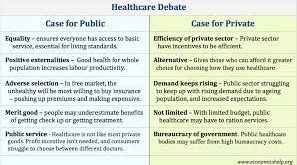The health insurance industry is undergoing a significant transformation, driven by advances in technology. From improving customer experience to streamlining operations and enhancing data analysis, technology plays a crucial role in shaping the future of health insurance. This article explores the various ways technology is impacting health insurance, the benefits it brings, and the challenges it poses.
 1. Enhancing Customer Experience
1. Enhancing Customer Experience
Digital Platforms and Mobile Apps
- Access to Information: Many insurance companies now offer user-friendly websites and mobile apps that allow customers to easily access information about their plans, benefits, and claims status. This accessibility empowers consumers to make informed decisions about their healthcare.
- Telehealth Services: The rise of telehealth has expanded access to care, enabling insured individuals to consult with healthcare providers via video or phone calls. This convenience reduces barriers to accessing care and can lead to quicker diagnoses and treatment.
Personalized Communication
- Automated Messaging: Insurers are leveraging automated messaging systems to provide timely updates about policy changes, reminders for preventive services, and personalized wellness tips, improving overall engagement with customers.
- Chatbots and AI Support: Artificial intelligence-driven chatbots can answer common questions and assist customers in navigating their insurance options 24/7, enhancing service availability and efficiency.
2. Streamlining Operations
Claims Processing
- Automation of Claims: Technology has streamlined the claims processing workflow, allowing for faster approvals and payments. Automated systems can quickly assess claims for completeness and accuracy, reducing the time spent on manual reviews.
- Fraud Detection: Advanced data analytics and machine learning algorithms are being utilized to identify suspicious patterns and potential fraud in claims submissions, helping insurers mitigate losses.
Data Management
- Electronic Health Records (EHRs): Integration of EHRs allows insurers to access comprehensive patient data, improving the underwriting process and enabling more accurate risk assessments.
- Big Data Analytics: Insurers are using big data to analyze trends, predict health outcomes, and tailor their products to better meet the needs of consumers. This data-driven approach enhances decision-making capabilities across the organization.
3. Improving Risk Assessment and Underwriting
Predictive Analytics
- Enhanced Risk Stratification: Predictive analytics helps insurers assess risk more effectively by analyzing historical data and identifying high-risk populations. This enables more tailored insurance plans and pricing strategies.
- Personalized Premiums: Technology allows for the assessment of individual health behaviors and conditions, leading to more personalized premium pricing based on actual risk rather than broad categories.
4. Encouraging Preventive Care
Wearable Technology
- Health Tracking Devices: Wearable devices, such as fitness trackers and smartwatches, enable individuals to monitor their health metrics, such as heart rate and activity levels. Insurers can incentivize healthy behaviors by providing discounts or rewards for meeting specific health goals.
- Remote Patient Monitoring: Technology facilitates remote monitoring of patients with chronic conditions, helping insurers support proactive care management and reducing the need for costly interventions.
5. Challenges and Considerations
Data Privacy and Security
- Protecting Sensitive Information: As health insurers increasingly rely on technology, concerns about data privacy and security grow. Ensuring compliance with regulations, such as HIPAA, is essential to protect patient information from breaches and unauthorized access.
- Consumer Trust: Building consumer trust in the handling of personal health information is crucial. Insurers must be transparent about how data is collected, stored, and used.
Digital Divide
- Access Inequality: While technology offers numerous benefits, disparities in access to digital tools can create inequalities in healthcare. Ensuring that all consumers, regardless of socioeconomic status, can access health insurance technology is vital for equitable care.
 Conclusion
Conclusion
Technology is playing a transformative role in the health insurance industry, enhancing customer experience, streamlining operations, and improving risk assessment. While the benefits are significant, challenges related to data privacy and access must be addressed to ensure that technology serves as a force for good in healthcare. As the industry continues to evolve, embracing technological innovation will be key to meeting the needs of consumers and improving health outcomes for all.


